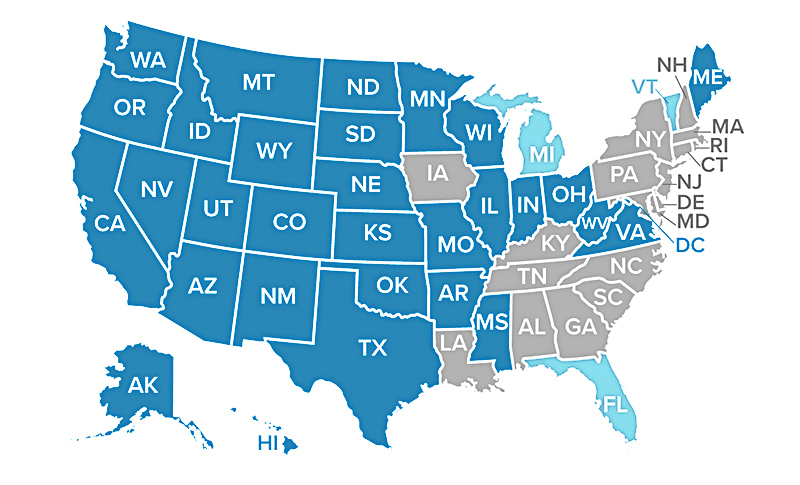This post was originally published on this site

If you want to leave your home to
your children or other heirs and keep
the property out of the costly and
time-consuming probate process, you
could place your home in a living trust.
Trusts offer numerous advantages,
but they incur up-front costs, often
have ongoing administrative fees, and
involve a complex web of tax rules
and regulations.
More than half of U.S. states offer a
simpler and less expensive way to
avoid probate through a transfer-on-death (TOD) deed (also called
a beneficiary deed). As the name
suggests, this is a legal document that
directly transfers ownership of the
property from you to your designated
beneficiary or beneficiaries upon
your death. You retain full ownership
and control while you are alive,
and your beneficiary has no rights
to the property until after your
death. (Beneficiaries also inherit any
associated financial obligations, such
as a mortgage or lien.)
The TOD deed must be filed with the
appropriate land records office. The
deed supersedes your will, so be sure
the provisions of your will match the
deed. If you change your mind, the
deed can be revoked and/or replaced
through a new filing. As with all
beneficiary documents, it would be wise
to designate contingent beneficiaries in
the event that a designated beneficiary
predeceases you.
In some states, a married couple
who own a house together through
joint tenancy or as community
property with right of survivorship
would each have to complete a TOD
deed. The deed for the first spouse
who dies would be void, and the
deed for the second spouse would
transfer ownership to the designated
beneficiary(ies).
TOD accounts
In most states, you can apply a
transfer-on-death provision to
individual non-retirement brokerage accounts. This typically involves filing
a form with the financial institution
to designate a beneficiary or
beneficiaries (including contingent
beneficiaries) and register the account
as TOD. Ownership of the TOD
account would transfer directly to the
designated beneficiary(ies) upon your
death without going through probate.
Like TOD deeds, a TOD account
designation supersedes your will.
For a joint account, the effect of a
TOD designation would depend on
the type of account.* Retirement
accounts generally go directly to the
beneficiary(ies) without probate and
do not require being retitled as TOD.
Bank accounts offer a similar
designation called Payable on Death
(POD). One key difference is that
POD accounts typically do not allow
contingent beneficiaries.
States in dark blue allow a TOD deed

Florida, Michigan, and Vermont (light blue) allow a similar document called an
enhanced life estate deed or Lady Bird deed. Texas and West Virginia allow
TOD and Lady Bird deeds. Source: Nolo, October 8, 2024
Estate and capital gains taxes
A TOD deed or account designation
does not remove the property or
account assets from your taxable
estate. However, with high federal
estate tax exclusion amounts, few estates would
likely be subject to federal estate
taxes.**
If your heirs sell your home or account
assets, they could be subject to
capital gains taxes regardless of
whether they receive the property/account through a living trust or a
TOD deed. However, the
step-up
in basis
provision of U.S. tax law
automatically sets the basis as the fair
market value of the home or account
at the time of your death, effectively
eliminating all capital gains up to
that time. Your heirs could shelter
$250,000 of gains ($500,000 for
a married couple) if they live in the
home for two out of five years before
selling. (There is no shelter provision
for financial accounts.)
Although you do not need an attorney
to execute a TOD deed in most states,
you may want to consult an attorney
familiar with the laws of your state.
You should consider the counsel
of experienced estate planning,
legal, and tax professionals before
implementing trust strategies.
*A TOD designation on a
joint ownership/tenancy
or
tenants by/in the entirety
account would only become
effective if both owners die simultaneously. A TOD on
a
tenants in common
account would be similar to an
individual account.
**For estates of those who die in 2025, the exclusion is $13.99
million, with a combined $27.98 million exclusion for a
married couple.
